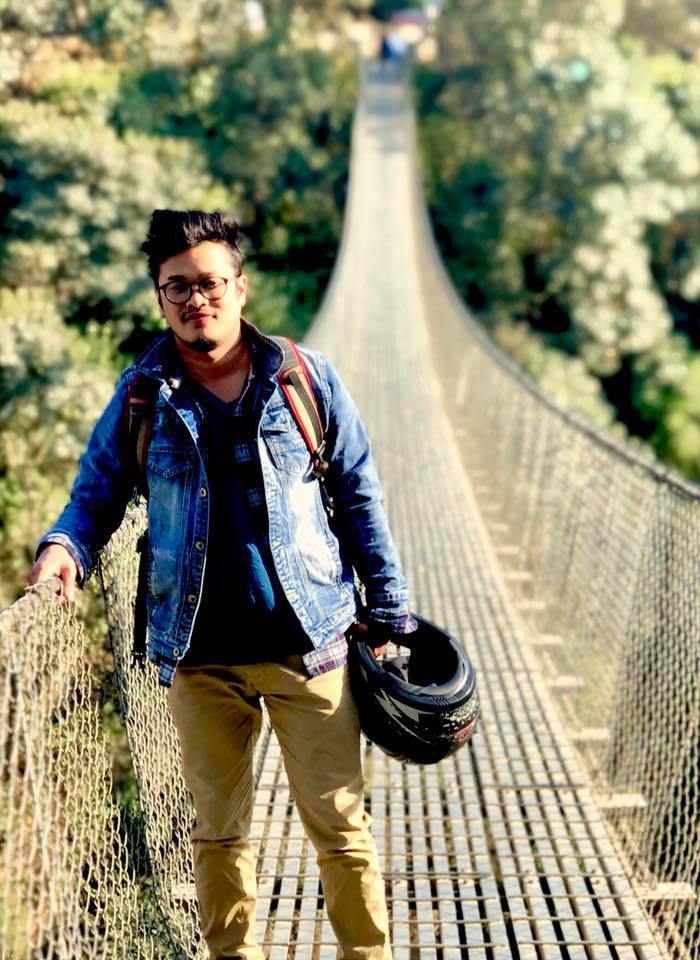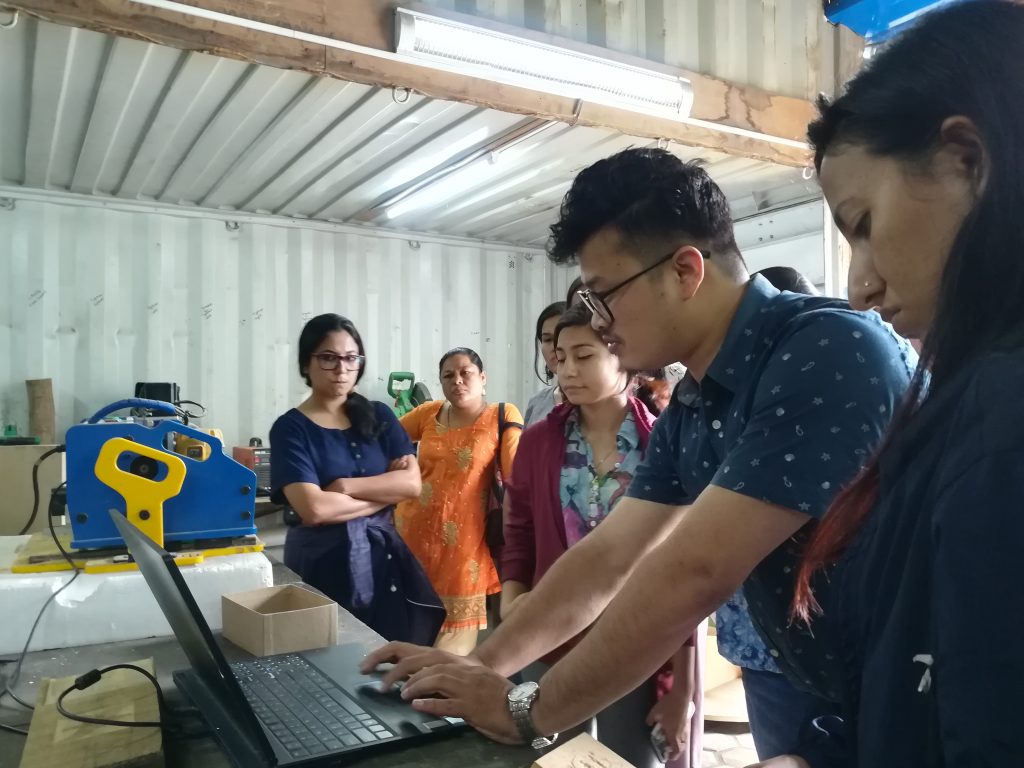Pallab Shrestha is the newest addition to our Nepal Communitere team. Bringing his background in mechanical engineering, work experience from Japan and a keen passion for tinkering Pallab is leading Nepal Communitere’s FabLab project.

What were you doing before joining the Nepal Communitere team?
I completed my MSc degree in Mechanical Design and Manufacturing in 2019 from the Institute of Engineering, Thapathali. My thesis was on computer-integrated manufacturing. The paper explored the potential of computer-assisted design and data management in creating efficient manufacturing processes, from the design phase to production.
At the same time I was working on my own engineering consultancy business, Nepal Mind Factory that focuses on leveraging data to provide engineering solutions for local governments and construction projects to improve decision-making and efficiency. While this wasn’t directly related to my studies, I saw how the lack of high quality data was a huge challenge in Nepal’s design and manufacturing sector. The business was an opportunity my partners and I saw to address this challenge.
How did you hear about the NC position? What made you want to join?
Honestly speaking, when I read about Nepal Communitere’s FabLab Project the word design was key in my mind. I tend to think of myself as a dreamer; I love to design, create, tinker. I’ve always had an appreciation for the fine arts as well. To me, it’s exciting when I can merge together my passion for art and design.
The FabLab project felt different from any other opportunity I saw in the Nepali market. In my experience, people in Nepal do not understand the long-term impact of good design. Personally, I’ve always felt Nepal could greatly benefit from building a rich culture of R&D. Cultivating this requires a space where people can not only build their technical skills, but also develop a problem-solving mindset. Nepal Communitere’s vision for the FabLab is very much in line with that. The FabLab is more than just equipment or skills training. The emphasis on creative problem-solving, thinking of the end-users, learning by doing and taking into account the whole iterative nature of making. This made me feel NC’s FabLab was the right fit for me
What type of user is the FabLab for?
It’s for the person who wants to create, irrespective of their training or background. The conceptual thinker who is ready to bring their idea into reality. The practical problem-solver looking for a better solution. The maker who wants to learn how to use fabrication tools. The innovator who needs a space to experiment. From rural communities to urban spaces, the FabLab has the potential to serve many diverse users.
At the same time, it also holds great potential for industries looking to become more competitive in the global market. Generally speaking, the Nepali manufacturing sector is still heavily paper-based. The digital divide between global manufacturing practices and Nepal’s practices are getting more pronounced. The design phase impacts every decision down the line, from what raw materials to use, how much, the equipment and skills required throughout the manufacturing process. The FabLab can help industries strengthen their R&D, product development and prototyping.

What can the community look forward to with the new FabLab at Nepal Communitere?
Through the FabLab project, Nepal Communitere’s Makerspace will house different digital fabrication equipment like CNC and laser cutters, 3D printers, Cricut Machines to enable rapid prototyping and product development. At the same time, the FabLab will be rolling out skills building programs that teach users how to operate these machinery and use this technology to come up with better designs and manufacturing processes.
What are you most looking forward to with the FabLab Project?
Of course, I’m excited to see all the different products that will come out of the Makerspace. It’s always a thrill seeing a concept transformed into a tangible thing. The hope is to see many usable products and learnings that have social-impact, or push innovation in the private-sector come out of our Makerspace.
Frankly, I would consider it a win even if we can just get more people in Nepal to use Makerspaces. I want to see people of all ages, education levels, interests in our space. It shouldn’t be limited to just engineers, we need artists, local manufacturers, students, teachers coming in with an enthusiasm for making. If the FabLab is buzzing with self-driven people, dedicated to solving problems, enjoying and relishing in getting to design and build things, I would consider that a huge step in the right direction towards building a culture of design and innovation in Nepal.